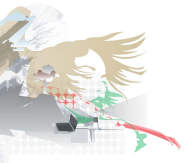Knowledge and Slowness in Learning
Knowledge workers need to know how to use tools and frameworks to do their jobs according to Charles Jennings, Global Head of Learning at Reuters UK. Jennings painted a clear picture of the way workplaces have changed over the last 20 years on day 2 of the Global Summit 2006 in Sydney:- 70% of jobs created in the USA since 1998 have been for "knowledge workers"
- "knowledge worker"jobs now make up 41% of all jobs in the USA (2005)
- only 20-30% of workplace performance is knowledge/skills related (2005)
- people learn 80% of what they need to know informally on-the-job
He cited Kelley's longitudinal study showing how the amount of knowledge that we need to know in our own minds to do our jobs has changed: 1986 - 75% ... 1997 - 15-20% ... 2006 - 8-10%
Jennings spoke of the need to shift from training to learning; of the need to know less and learn more; of the need for workers to have tools and frameworks to locate and process what they need to know when they need to know it.
And now for something completely different...
Geetha Narayanan from the School of Art Design and Technology, India presented two concepts. The first was the importance of digital story telling - showing how young disadvantaged people can be empowered to use cameras and recorders to tell their own powerful stories. And to tell them so well that they win international competitions.
 The second was the notion of "slow schools". Narayanan spoke of the importance of health and well-being among today's technology rich, fast-paced and consumer oriented middle-class learners. The slow school idea was spawned by the slow food campaign which began as a protest against fast-food outlets but is rapidly becoming a global movement and has recently been popularised by TV chef Jamie Oliver as slow food moves into schools and begins to transform education...
The second was the notion of "slow schools". Narayanan spoke of the importance of health and well-being among today's technology rich, fast-paced and consumer oriented middle-class learners. The slow school idea was spawned by the slow food campaign which began as a protest against fast-food outlets but is rapidly becoming a global movement and has recently been popularised by TV chef Jamie Oliver as slow food moves into schools and begins to transform education...
Slow schools look for opportunities to slow the pace of thinking and move to being in the moment. Narayanan gave examples of moving students from thinking about the sun to embodying and being the sun as they sit in circles with feet touching, or slowly draw 10 suns rather than one, or as they dance watching sunrise...
Slow schools allow time for discussion and reflection - and focus on how students form concepts and make meaning.
 Co-incidentally my blog reading recently introduced me to "slow design" and "slow cities" - the latter is already a network of 100 towns in 10 countries embodying the 'slow' metaphor.
Co-incidentally my blog reading recently introduced me to "slow design" and "slow cities" - the latter is already a network of 100 towns in 10 countries embodying the 'slow' metaphor.
Perhaps this brings new meaning to the concept of the slow learner :-)
Labels: 21stCentury, conceptual frameworks, transformation




3 Comments:
Have you seen Sloodle?
What is Sloodle?
SLoodle is a project to integrate the VLE platform Moodle with the 3D world of Second Life. Imagine a Moodle course that, if you wanted, could turn into a proper 3D interactive classroom with all your Moodle resources available to your students in the virtual world.
http://www.sloodle.com/
This could be very interesting...
Thanks...
Pete...
I agree with your thoughts about use of time. How long did it take you to make the transtion from the old way to your new mode of operation?
I really like the idea of "slowness in learning'; too often both in class and out we don't take/make the time to think, reflect, discuss what we are learning. We become too focussed on the end point (assessment) and don't focus on the elarning.
Post a Comment
<< Home